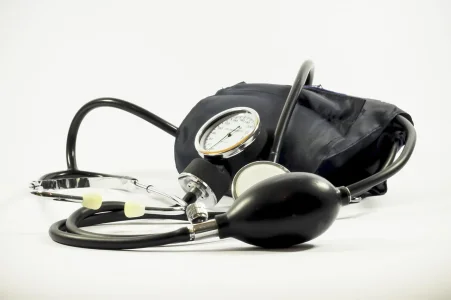
Managing high blood pressure, or hypertension is crucial for overall health and well-being. It's important to note that these recommendations are general guidelines and not a substitute for professional medical advice. If you or someone you know has high blood pressure, it is essential to consult with a healthcare provider for personalized guidance. That said, here are seven ways Nigerians (or anyone) can manage high blood pressure in their lives:
- Regular Blood Pressure Monitoring: Keep track of your blood pressure regularly at home or by visiting a healthcare professional. Regular monitoring allows you to identify any fluctuations or changes in blood pressure and take appropriate action.
- Adopt a Healthy Diet: Emphasize a balanced and heart-healthy diet. Reduce your salt (sodium) intake, as excessive salt can contribute to high blood pressure. Consume more fruits, vegetables, whole grains, lean proteins, and healthy fats. Traditional Nigerian diets can be adapted by reducing salt and high-fat ingredients.
- Exercise Regularly: Engage in regular physical activity or exercise. Aiming for a minimum of 150 minutes of moderate-intensity aerobic activity is recommended. (e.g., brisk walking, swimming, cycling) per week. Physical exercise effectively reduces high blood pressure and enhances overall cardiovascular health.
- It's important to maintain a healthy weight in order to avoid health issues like obesity or being overweight. These conditions can increase the risk of high blood pressure and other health problems. To manage your blood pressure and overall health, it's crucial to adopt a balanced diet and regular exercise routine.
- Limit Alcohol and Quit Smoking: Excessive alcohol consumption can raise blood pressure, so drinking in moderation or avoiding it altogether is essential. Smoking and tobacco use can also elevate blood pressure and increase the risk of heart disease, so quitting smoking is crucial for overall health.
- Manage Stress: Stress can temporarily elevate blood pressure, and chronic stress can contribute to hypertension. Practice stress-reducing techniques like meditation, yoga, deep breathing exercises, or hobbies that help you relax.
- Take Medications as Prescribed: If a healthcare professional prescribes, take medications for high blood pressure as directed. Follow up with your doctor regularly. It is important to keep track of your health status and modify your treatment plan accordingly.




